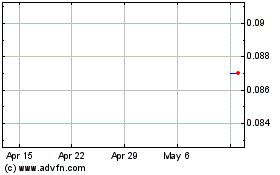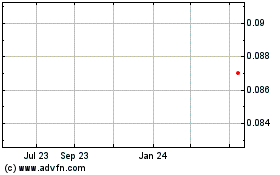Virgin Australia Bemoans Soft Demand, Deepens Savings Drive -- Update
05 August 2016 - 10:58AM
Dow Jones News
By David Winning and Rebecca Thurlow
SYDNEY--Virgin Australia Holdings Ltd. (VAH.AU), Australia's No.
2 airline by market share, sounded a downbeat note on domestic
demand for air travel as it made progress on achieving key goals
such as cost cuts.
Chief Executive John Borghetti said consumer demand in Australia
remained very soft, continuing a six-month trend that's already
prompted Virgin to cut capacity--the number of seats available to
passengers--on routes to regions hurt by the resources
downturn.
Mr. Borghetti said uncertainty around the federal election on
July 2, which was won by Malcolm Turnbull's conservative coalition
after a prolonged vote count, had added to the industry turbulence
by prompting people to put off travel plans.
"What we are not seeing is any improvement in that going
forward," said Mr. Borghetti, adding that Virgin would keep
adjusting capacity depending on demand.
As a result of the market uncertainty, Virgin isn't giving
specific profit guidance to investors. Still, Mr. Borghetti said
the company was performing well and its international business is
on track to become profitable by the end of June, 2017.
Virgin said it also expected to beat a target of 1.2 billion
Australian dollars (US$915 million) in cost savings by the end of
the 2017 financial year while also targeting an additional A$300
million in net free cash flow savings by the end of the 2019
financial year.
The airline made a net loss of A$224.7 million in the year
through June as it booked costs for a fleet culling program
designed to wind back capacity after years of investment to take on
bigger rival Qantas Airways Ltd. (QAN.AU). However, its underlying
pre-tax result swung to a profit of A$41 million, in line with
guidance, from a loss a year ago.
As part of that cost-saving drive, Virgin aims to remove some
planes acquired through recent acquisitions, including a fleet of
Tigerair-branded A320 aircraft that are due to leave service over
the next three years.
In recent years, supported by big shareholders including Etihad
Airways and Singapore Airlines (SINGY), Brisbane-based Virgin
Australia has invested heavily in transforming its business from a
budget carrier to a full-service airline, competing head-to-head
with Qantas. The two airlines engaged in a damaging price war that
caused losses for both companies before pressure from investors
spurred them to scale back on capacity.
Qantas' finances have since rebounded strongly, but Virgin
Australia's recovery has been less spectacular. In spite of falling
fuel prices that have proved a boon elsewhere, Virgin Australia's
heavy investment in recent years has left it more highly geared
than Qantas, making it harder to compete.
Chinese companies HNA Group and Nanshan Group bought stakes in
Virgin Australia in May and June, respectively, as the Australian
carrier sought fresh capital to shore up its balance sheet.
The airline this week completed a A$852 million offer of shares
to existing investors, raising further funds to reduce debt and
finance its cost-cutting program. Major shareholders including
Singapore Airlines, Virgin Group, HNA and Nanshan participated in
the offer.
-Write to David Winning at david.winning@wsj.com and Rebecca
Thurlow at rebecca.thurlow@wsj.com
(END) Dow Jones Newswires
August 04, 2016 20:43 ET (00:43 GMT)
Copyright (c) 2016 Dow Jones & Company, Inc.
Virgin Australia (ASX:VAH)
Historical Stock Chart
From Feb 2025 to Mar 2025

Virgin Australia (ASX:VAH)
Historical Stock Chart
From Mar 2024 to Mar 2025
